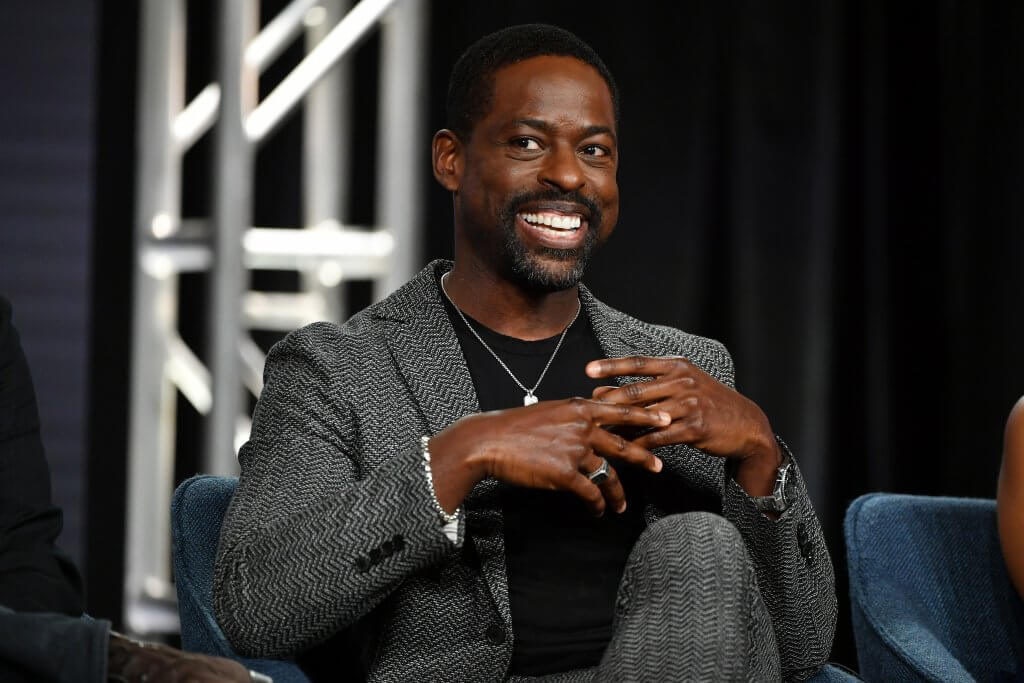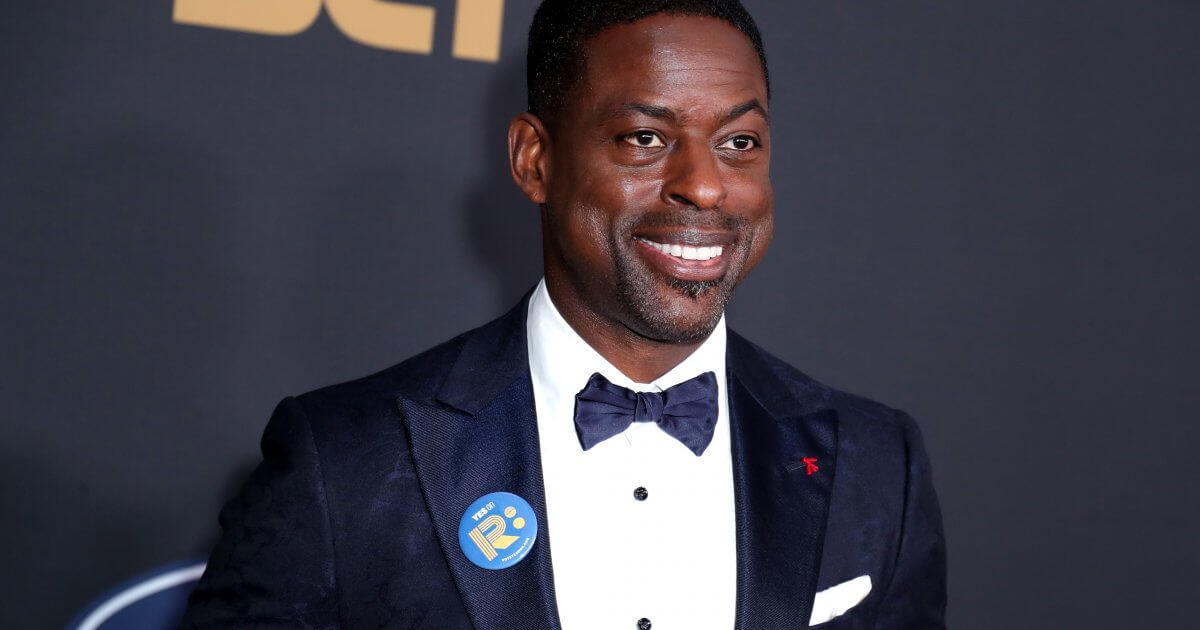Sterling K. Brown Lost Uncle to Cancer
- Sterling K. Brown, star of This Is Us, lost his uncle to pancreatic cancer before his rise to fame. His new web series and cancer-related stories in the show helped him cope with the loss.
- Pancreatic cancer is a difficult disease to detect and treat, with a one-year survival rate of only 9%.
- African Americans are not only disproportionately likely to die from cancer, but live far shorter amounts of time after diagnosis than their white counterparts.
Brown, who skyrocketed into the national spotlight for his compelling portrayal of Randall Pearson, lost both his father and uncle prior to the show's inception, with his Uncle Sonny's death in 2004, just six months after a cancer diagnosis. Brown has said his acting and philanthropic activities were, in part, shaped by these losses.
Read MoreCancer Advocacy
"What made me want to get involved [in cancer awareness] was the passing of my uncle," Brown told the Grio. "I wanted to do it for this man, my mom's little brother. He died within six months of his diagnosis, and it was a devastating loss for my family." His new web series, Survivorship Today, is an intimate look at the lives of survivors post-cancer. With the first interviews focusing on Justin Birckbichler, who was diagnosed with testicular cancer at only 25-years-old, Brown hopes that the project will normalize survivors' experiences. He hopes it will help destigmatize the often unpleasant conversations that come along with a cancer battle.Related: 5 Important Facts About Testicular Cancer, Including How to Screen for the Disease
Brown explains, "When you are able to connect with other people who have had that experience, it normalizes it. Instead of feeling like the odd man out, you feel like people understand. I hope it diminishes stigma and normalizes the experience for people who are survivors so that they can feel entitled to feel however they feel, grateful or otherwise."

Brown's experience with loss also collided with the first season of This is Us, as his character reconnects with his biological father who is dying of cancer. Brown said his character's experience of guiding his "father," played by Ron Cephas Jones, through the last stages of cancer merged with his feelings of wanting to comfort his own late father and uncle.
"It was a real wonderful opportunity for [my character] Randall to have an infusion of Sterling and live through the moment of being able to say goodbye to that loved one, to be there to be able to give them some sense of calm and some sense of peace as they move from one realm of existence to the next," Brown told Cure Today.
Pancreatic Cancer: What to Know
Pancreatic cancer is among the most challenging forms of cancer for patients and doctors to combat.
"It is the solid tumor cancer that has the worst prognosis. It is right now the third leading cause of cancer death, soon to be the second leading of cancer death in the United States," Dr. Allyson Ocean, medical oncologist at Weill Cornell Medical Center, said.
Pancreatic cancer is typically detected once the disease has progressed to its later stages, as symptoms rarely appear in early phases. Even when caught, there are few effective treatments and medications that can successfully target and kill pancreatic cancer cells.
Dr. Allyson Ocean explains why pancreatic cancer is so hard to treat.
"The cancer cells are surrounded by what is called a stroma," Dr. Ocean said, "and the stroma serves as a barrier for medications to get to the cancer to kill it."
Combined, these factors explain why the one-year survival rate for pancreatic cancer is only 9%.
Innovation and Awareness Can Improve Outcomes
However, there is hope for pancreatic cancer patients. New experimental therapies show promise in managing symptoms and suppress tumorous growth. Pioneering immunotherapies proposed by medical experts like Dr. Soon-Shiong have been successful in combatting the disease, with former Senate Majority Leader Harry Reid saying these treatments saved him.
"It's made a tremendous difference in my life," Reid told SurvivorNet in a previous interview. "It's something that people could only dream of a year ago."
Perhaps the biggest advancement in the pancreatic cancer world has been in public awareness. Following Jeopardy! host Alex Trebek's diagnosis in October 2019, the number of people searching for "pancreatic cancer" increased thirty-fold in a single day. Trebek's lengthy public battle with the disease has driven millions to learn more about pancreatic cancer, its warning signs, and potential treatments.
"We saw a tremendous spike in people coming to our website around [Trebek announcing his cancer diagnosis]," Pancreatic Cancer Action Network CEO Julie Fleshman told SurvivorNet in a prior interview. "People called into our patient services program which I always think is one of the most important results. People were calling us to get information and resources. We saw a significant impact in numbers across the board."
Detecting Pancreatic Cancer Early is Crucial
Medical experts urge vigilance in checking yourself for potential symptoms of pancreatic cancer, which include:
- Abdominal pain that radiates to your back
- Loss of appetite or unintended weight loss
- Yellowing of your skin and the whites of your eyes (jaundice)
- Light-colored stools
- Dark-colored urine
- Itchy skin
- New diagnosis of diabetes or existing diabetes that’s becoming more difficult to control
- Blood clots
- Fatigue
The Role of Race in Cancer Diagnosis
Sonny's cancer battle is also a part of a broader trend in cancer diagnosis: African Americans have the highest cancer death rates and the lowest expected survival time after diagnosis of any racial or ethnic group.

Racial Disparities in Cancer Care Are Devastating and We’re Working to Help Change Things
Race is an immutable factor in cancer diagnosis, and SurvivorNet's Close the Gap initiative is working to spread awareness of differences in cancer diagnosis, treatment, and outcomes.
Researchers have attributed this disturbing trend partially to socioeconomic conditions limiting the ability of Black patients to access proper healthcare and to lower follow-up rates after cancer screenings.
Related: How Race Affects Blood Cancer Risk
Another potential factor is the comparative lack of genetic screening tests for possible mutations unique minority groups. According to a study seeking to answer why Black men die from colorectal cancer at a much higher rate than their white counterparts, "We still know relatively little about the molecular mechanisms underpinning why African Americans with colorectal cancer are more likely to die from the disease than other ethnic groups."
Much work remains to be done to overcome the historical mistrust between Black Americans and the medical community. According to Dr. Otis Brawley, a medical oncologist at Johns Hopkins University who specializes in studying racial disparities in medicine, "People who have trust are people who have a long-term history of providing service and not taking advantage of people, and who the patients believe have their best interests in mind."
Learn more about SurvivorNet's rigorous medical review process.


